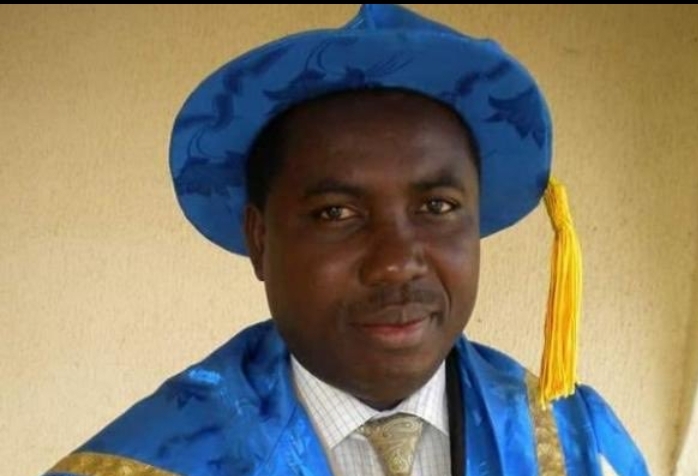
In a significant move to fill the leadership vacuum at Nigeria’s electoral body, President Bola Ahmed Tinubu has nominated Professor Joash Ojo Amupitan (SAN) as the new Chairman of the Independent National Electoral Commission (INEC). The nomination has already received unanimous endorsement from the National Council of State and is pending Senate confirmation.
His appointment follows the conclusion of Professor Mahmood Yakubu’s ten-year tenure as INEC Chairman, and comes amid rising expectations that the new leader will guide the commission through ongoing reforms and upcoming election cycles.
Below is an in-depth look at the life, career, and credentials of Prof. Amupitan, and how his appointment fits into Nigeria’s evolving electoral landscape.
The Appointment: Process, Significance, and Expectations
On Thursday, October 9, 2025, the National Council of State unanimously approved Prof. Amupitan’s nomination as INEC Chairman. President Tinubu had presented his name during the Council meeting at the Presidential Villa in Abuja.
In announcing the approval, President Tinubu hailed Amupitan as “apolitical and eminently qualified,” noting that he is the first person from Kogi State and the North-Central region to be nominated to lead INEC. Kogi State Governor Ahmed Usman Ododo also commended the nominee as a “man of integrity.”
In line with constitutional requirements, Tinubu will now forward Amupitan’s name to the Senate for screening and confirmation.The change in leadership is seen as timely, given the demands on INEC to enhance transparency, enforce electoral reforms, and manage increasingly fractious political contests ahead.
Observers note that Amupitan steps into a role at a moment when Nigeria’s electoral institutions are under intense public scrutiny. He is expected to bring fresh ideas and credibility to the commission, and to reassure stakeholders—political parties, civil society, and voters—that INEC can deliver credible elections.
Biography and Career of Professor Amupitan
Early Life and Education
Prof. Joash Ojo Amupitan was born on April 25, 1967. He hails from Ayetoro Gbede in Ijumu Local Government Area, Kogi State.
He began his postsecondary education at Kwara State Polytechnic, Ilorin (1982–1984), before proceeding to the University of Jos in 1984, where he obtained his LLB in 1987. Following law school, he was called to the Nigerian Bar in 1988.
Amupitan later earned a Master of Laws (LLM) from UNIJOS in 1993, and a PhD in Law from the same institution in 2007.
Academic and Professional Trajectory
Joining the University of Jos in 1989 as an Assistant Lecturer, Amupitan rose steadily through academic ranks, becoming a Reader in 2003 and attaining full Professorship in 2008. Throughout his academic life, he has specialized in Company Law, Law of Evidence, Corporate Governance, and Privatization Law.
At UNIJOS, he has held multiple leadership positions:
-
Head, Public Law Department (2006–2008) Dean, Faculty of Law (2008–2014)
-
Chairman, Committee of Deans & Directors (2012–2014) Other administrative roles at departmental and university levels
He currently serves as Deputy Vice-Chancellor (Administration) at UNIJOS. In addition, he holds the position of Pro-Chancellor and Chairman of the Governing Council of Joseph Ayo Babalola University (JABU) in Osun State.
Legal Standing and Public Roles
Professor Amupitan was conferred the rank of Senior Advocate of Nigeria (SAN) in September 2014, an accolade that underscores his standing in the legal profession.
Beyond academia, he has engaged in public service and governance roles. He has served on the boards of Integrated Dairies Limited (Vom), and was a board member of Riss Oil Limited in Abuja between 1996 and 2004. He has also been part of the Council of Legal Education, the governing council of the Nigerian Institute of Advanced Legal Studies, and other regulatory bodies.
An accomplished author, Amupitan has published extensively in his fields of specialization. His works include Corporate Governance: Models and Principles (2008); Documentary Evidence in Nigeria (2008); Evidence Law: Theory and Practice in Nigeria (2013); Principles of Company Law (2013); and An Introduction to the Law of Trust in Nigeria (2014).
On the personal front, he is married to Dr. (Mrs.) Yemisi Amupitan, and they have four children.
Implications and Challenges Ahead
Prof. Amupitan inherits an institution under significant pressure: demands for electoral integrity, technological modernization, credible voter registration, and safeguards against electoral violence. His academic background and legal expertise position him well, but expectations will be high.
Analysts suggest that success for the new INEC Chairman will depend on several factors:
-
Maintaining political neutrality: The description of him as “apolitical” by the presidency and other endorsers will now be tested in practice.
-
Institutional reforms: He must advance proposals for strengthening INEC’s systems, including voter data integrity, election logistics, and dispute resolution mechanisms.
-
Stakeholder engagement: Building trust with political parties, civil society, observers, and media will be critical.
-
Timely delivery: With general elections ahead, he must ensure that the commission meets deadlines without compromising procedural fairness.
-
Resource mobilization: Adequate funding, staffing, and security support will determine how far he can implement agenda items.
His appointment is already being viewed as a signal that the Tinubu administration seeks continuity of institutional evolution at INEC, with fresh leadership. The fact that he comes from a region not typically seen in the INEC chair role (North-Central) may also reflect attempts at broader regional representation in national appointments.
However, critics will watch to see whether his academic prominence translates into the political acumen and managerial effectiveness required to steer INEC through Nigeria’s contentious electoral terrain.
President Tinubu’s appointment of Prof. Joash Ojo Amupitan as INEC Chairman marks a pivotal moment in Nigeria’s electoral history. The unanimous approval by the National Council of State and his distinguished academic and legal credentials have raised hopes that he can bring renewed credibility and efficiency to a commission central to Nigeria’s democratic governance.
Yet, as he awaits Senate confirmation, the real test lies ahead: translating expertise into performance under pressure; upholding impartiality amid political intensity; and steering Nigeria toward more credible, transparent elections. The coming months will reveal the extent to which Prof. Amupitan can meet those expectations and earn public confidence in Nigeria’s electoral architecture.






